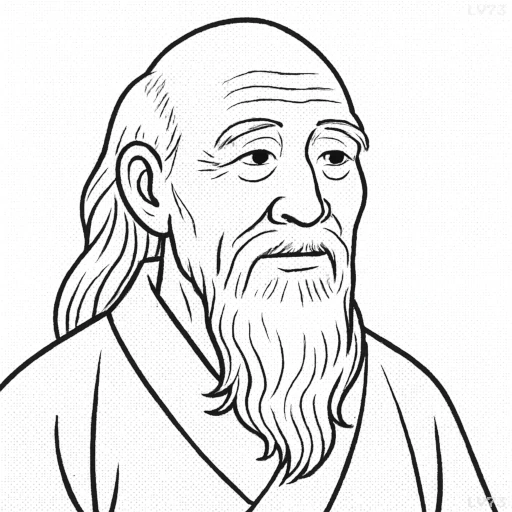“He who knows others is wise. He who knows himself is enlightened.”

- 571 BC? – 470 BC?
- Born in China
- Philosopher
table of contents
Quote
“He who knows others is wise. He who knows himself is enlightened.”
Explanation
This quote from Laozi highlights two levels of knowledge: the understanding of others and the deeper understanding of oneself. Laozi suggests that wisdom comes from being able to understand others, to perceive their motivations, desires, and actions. This ability allows a person to navigate the world and interact effectively with others. However, Laozi goes deeper by stating that true enlightenment arises when a person gains the ability to understand themselves—their own thoughts, emotions, and motivations. Knowing oneself is not just about intellect, but about self-awareness, acceptance, and aligning with one’s true nature. It’s in this deeper understanding that peace, clarity, and authenticity arise, leading to greater enlightenment.
In modern life, this idea resonates with the concept of self-awareness and emotional intelligence. While understanding others is crucial for building strong relationships and navigating the external world, the foundation of wisdom and personal growth lies in understanding ourselves. By reflecting on our values, beliefs, and patterns, we are better equipped to respond thoughtfully to life’s challenges, rather than reacting impulsively. Self-awareness also fosters compassion and empathy for others, as we can relate to the struggles and experiences of those around us with a deeper sense of understanding.
The quote also speaks to the growing emphasis on mindfulness and personal development today. As we cultivate a deeper connection with ourselves, we become less influenced by external expectations or societal pressures, and more guided by our own inner wisdom. Laozi’s teaching encourages us to focus not just on understanding others but on the more profound and transformative journey of self-discovery. By knowing ourselves, we unlock a greater sense of freedom, purpose, and peace, leading to true enlightenment.
Would you like to share your impressions or related stories about this quote in the comments section?

